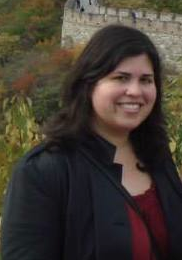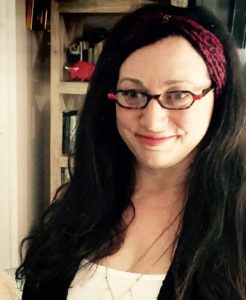 This month’s Industry Insider interview is with Abigail Samoun—Abi to her pals—co-founder and literary agent at Red Fox Literary. She’s also worked as an editor and has authored a number of children’s books, which makes her fluent in all aspects of the entire book industry. Talk about the ideal person to chat with for an Insider Interview!
This month’s Industry Insider interview is with Abigail Samoun—Abi to her pals—co-founder and literary agent at Red Fox Literary. She’s also worked as an editor and has authored a number of children’s books, which makes her fluent in all aspects of the entire book industry. Talk about the ideal person to chat with for an Insider Interview!
Since OPB readers have requested more Five Facts and One Lie games as a way to get to know interview subjects, here we go again. One of these is an out-and-out falsity, the others are all 100% totally yeppers. If you’re unsure which is the stinker, I’ll give you the 411 before we’re through.
- She organizes her library according to which authors would get along well together (Brontës next to George Eliot, etc.).
- Her husband’s an entomologist whose current research project is investigating biological control options of bagrada bug and spotted wing drosophila.
- She’s a former Girl Scout who once sold two boxes of Thin Mints to Barack Obama quite a few years before he was the senator of Illinois.
- As a child, she used to do acrobatics on horses and was the top girl in a five-girl pyramid atop a moving horse.
- Abi was born in Paris, France and French was her first language. She immigrated to the U.S. at age seven.
- She once worked as an intern at the Bronx Zoo and often spent her lunch hour hanging out with the big cats.
Well, with all that terrific bio-info, I don’t know about you, but I feel tremendously prepared for the following interview. Sound good? Let’s do it!
Website: www.mommikin.com/abigail-samoun
Agency website: www.redfoxliterary.com
Facebook: https://www.facebook.com/abigail.samoun
Twitter: https://twitter.com/abigailsamoun
RVC: Your undergraduate major at NYU–French Studies/Journalism–seems a bit unexpected. How did that prepare you for a career in the book world?
AS: Not all that well! My real love was literature but I thought journalism might be a more practical option. Little did I know at the time that a journalism degree in a world of print newspapers competing with Facebook, Twitter, and the blogosphere, wouldn’t be nearly as practical as I’d hoped. What really best prepared me for an editorial career were the many, many creative writing classes I took. In each, I had to give kind and insightful critiques of my fellow students’ works. I learned a lot about style, form, and characterization in those classes, and also how to give a critique without making the author feel defensive.
RVC: You must’ve learned those lessons well because you were killing it as an in-house children’s book editor for more than a decade, with the books you worked on receiving honors like the CCBC Charlotte Zolotow Award, the New York Public Library Ezra Jack Keats Award, and the Pura Belpré Award. Why did you switch to agenting in 2011?
AS: The publisher I worked for was bought by Random House and about a year later, they decided to shutter the children’s division. It was sad but it was just the kick in the butt I needed to get to the next stage of my career. I wrote down a list of all the things I liked to do and most of it had to do with working directly with authors and illustrators. The thought of leaving behind all those authors and illustrators I’d developed relationships with over the course of those ten years with the hardest part of being laid off. Agenting was a way to continue that work. The first clients I took on were authors and illustrators I’d worked with and come to know as an editor.
RVC: With nearly a decade of agenting behind you now, I’ll bet you have strong thoughts about this next question. What do you think is the most common misconception people have about agents?
AS: I always love seeing the way literary agents are portrayed in film and TV. I think the latest example of this was Melissa McCarthy’s agent in Can You Ever Forgive Me?, played by Jane Curtin. Often, they’re depicted as brash and scheming and money-hungry. But—and I think this is particularly true for children’s book agents—most of them got into the business because they care about books. We may be focused on getting our clients good deals and some of us can become pretty tough negotiators (I had an editor accuse me of this recently and I took it as quite a compliment), but the deals aren’t the most fulfilling part of the work.
Seeing a book you represented on a bookstore shelf, sharing the news of an offer with a client, securing a deal that will allow your struggling young client to quit his day job and spend the next year doing his art—those are what fulfills most kids’ book agents.
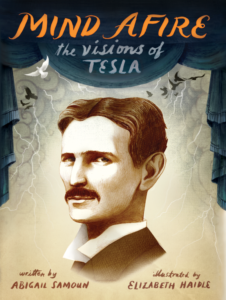 RVC: As mentioned in the intro to this interview, you’re an author, too. One of your books—an illustrated biography entitled Mind Afire: The Visions of Tesla—came about through a successful Kickstarter campaign. As someone who has watched writer pals try (often unsuccessfully) to fund creative things via crowdsourcing sites, what did you learn about the process?
RVC: As mentioned in the intro to this interview, you’re an author, too. One of your books—an illustrated biography entitled Mind Afire: The Visions of Tesla—came about through a successful Kickstarter campaign. As someone who has watched writer pals try (often unsuccessfully) to fund creative things via crowdsourcing sites, what did you learn about the process?
AS: What was great about the Tesla project is that we had a built-in audience of Tesla fans. At the time, there wasn’t that much out there about Tesla and he hadn’t yet reached the height of his cult popularity. So, I think our timing was really good. We also got lucky with our videographer who created an elegant, stylish video that made us look like hot shots. Plus Beth Haidle’s art is uniquely hers and was such a great fit for the subject—she created these charming animations to go with our Kickstarter launch and I think those won a lot of people over. It was also a point when Kickstarter was featuring makers on a monthly basis, rather than daily, so when they featured us, it really had an impact.
It was a wild ride, doing that book. I’d never written a nonfiction book before and I would lose myself completely in research, digging around and finding all kinds of fascinating and obscure info about Tesla. It was a good thing we had the weight of 1,500 backers to hold us to our deadlines.
RVC: You bet–1,500 backers is a ton! What tips do you have to help others who are considering crowdfunding a project?
AS: It feels like crowdfunding really works best when you can find a subject that has a niche—where you can find a group of people who are really passionate about it and who will be willing to make an investment simply based on that interest. It feels toughest to do a crowdfunded campaign on something really general, for which there’s a lot of competition—for example, a sci-fi/fantasy young adult novel. Compare that to a book set, say, in the world of competitive tennis, and you’ll be able to see that the target audience is much narrower and you’re likely to capture their interest just by virtue of the subject.
RVC: I’ve got a couple of students here at Ringling College’s creative writing program who are entertaining the thought of becoming a children’s book editor. Sure, they should probably move to NYC and work for a press—small, indie, or big—to get hands-on experience and make connections. But what type of personality or attributes do you think make someone well-suited to the editing world? What actionables might you recommend to help them become ready for the challenges that await?
AS: Well, first and foremost, you’ve got to be part of that passionate, underground society of rabid book lovers. Just about every editor I’ve met spent most of their childhood and adolescent years with their nose stuck in a book (yours truly included). Next, you have to understand how stories work—what makes a good story, what are the tools that are used. Creative writing and English lit classes help, but most of all, read good books. A good editor has a deep respect for the creative process and can intuit what their author is trying to accomplish, paragraph to paragraph, chapter to chapter. She understands that writing books is not easy and that there are always going to be challenges and ways to make the story stronger. An editor also has to be diplomatic and know how to work in teams. The book-making process is a long and complicated one—there are designers, art directors, copyeditors, proofreaders, production manager, printers, sales and marketing, book buyers, and, of course, the author and/or illustrators themselves. Much of the time, the editor is managing all these different people, like a conductor, trying to make sure everyone is doing their part properly.
RVC: In all your experience with the book industry—as a writer, an editor, and an agent—what has surprised you the most?
AS: As I mentioned, I took tons of creative writing classes throughout my long and varied college career and most of my teachers would tell us what a tough business writing was, and how it was hopeless to expect to get published, and that editors received literally tons of manuscripts daily and you had a better shot at going to the moon than getting published. But one of the encouraging things I’ve discovered in my career in children’s books is that talent really does rise above. Editors and agents may receive a ton of submissions but much of it isn’t from those bookish types who live, eat, and breathe books and writing. If you’re really passionate about it, committed to it, take your craft seriously, there’s a good chance you’ll get noticed. A writer who cares about words and has a musical ear and something personal and meaningful to say isn’t a dime a dozen. We love seeing work from such authors. We editors and agents are dying to find work we can really fall in love with. As jaded as we get, I think most of us still get that little flash of hope when we open a new submission and think, “maybe this will be the one.”
It’s a bit like kissing the frog and hoping for a prince. Most of us must be eternal romantics!
 RVC: Let’s circle back to your agency. Your co-founder, Karen Grencik, and I met at an SCBWI event a while back. I found her to be quite impressive. What do you see as her real strengths as an agent?
RVC: Let’s circle back to your agency. Your co-founder, Karen Grencik, and I met at an SCBWI event a while back. I found her to be quite impressive. What do you see as her real strengths as an agent?
AS: Karen is one of the most conscientious and caring people I know. She works hard for her clients and always knows how to keep what really matters—relationships and books you can be proud of—front and center. She’s ambitious in that she wants to see Red Fox’s reputation grow and shine, but she wants it to grow and shine because of the quality of the books we rep and the respect and care with which we treat our clients and the editors and designers we work with.
RVC: If I asked Karen the same question about you, what do you think she’d say are YOUR strengths as an agent?
AS: Ha! I know exactly what she’d say—she’d say I’m the shiny red sports car and she’s the trusty Volvo station wagon. But I don’t think that’s entirely accurate. She’s often more willing to take a chance than I am and she’s been the driving force behind bringing on our other agents Stephanie Fretwell-Hill, Jenna Pocius, and Jennie Kendrick. Karen has a real vision for the potential of our agency and pushes us toward that potential. I have a tendency to get stuck in the demands of the day-today.
Karen knows my strengths are more in the creative realm—envisioning the website, coming up with promos, editing manuscripts. She’s more of a big-picture person and she’s super organized and keeps on top of all the bills, banking, and other business‑y things. We balance each other really well and I feel so incredibly lucky to have teamed up with her.
RVC: Want to share the story of how you and Karen met, and how you partnered to become Red Fox Literary in 2011? You bought a manuscript from her, right? That’s what started it all?
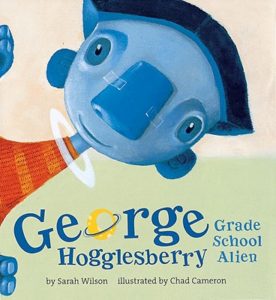 AS: Oh, it goes waaaayyy back. She and I first corresponded in 2001, when I was just a young cub editor, checking agent submissions for my boss, the publisher. Karen was a fairly new agent and sent in a manuscript by Sarah Wilson that I loved so I shared it with my boss and she liked it too. Then my boss said, “How would you like to edit this one?” I had no idea how to even make an offer on a book and acquire it, much less edit it. I was scared out of my wits. But both Karen and Sarah were very kind and patient. I remember a meeting early on where I sat at the table with them and my boss and I was so shy I could barely say anything. But Sarah kept turning to me and saying, “And what do you think, Abi?” I’ve never forgotten how kind and generous Karen and Sarah were to an awkward, fairly clueless, and very young editor.
AS: Oh, it goes waaaayyy back. She and I first corresponded in 2001, when I was just a young cub editor, checking agent submissions for my boss, the publisher. Karen was a fairly new agent and sent in a manuscript by Sarah Wilson that I loved so I shared it with my boss and she liked it too. Then my boss said, “How would you like to edit this one?” I had no idea how to even make an offer on a book and acquire it, much less edit it. I was scared out of my wits. But both Karen and Sarah were very kind and patient. I remember a meeting early on where I sat at the table with them and my boss and I was so shy I could barely say anything. But Sarah kept turning to me and saying, “And what do you think, Abi?” I’ve never forgotten how kind and generous Karen and Sarah were to an awkward, fairly clueless, and very young editor.
The picture book we did, George Hogglesberry, Grade School Alien, went on to win the Golden Kite Award from SCBWI. I recently read it aloud to my seven year old—eighteen years later—and it’s still a charming story.
RVC: One last serious question before we get to the LIGHTNING ROUND! Could you say a few words about the important relationship between agent and writer, and how one might find the ideal match, whether it’s at Red Fox or somewhere else?
AS: Your relationship with your agent, just like any important relationship, rests on a foundation of trust. You have to believe that your agent has your best interests at heart. I want all my clients to find success in children’s books. I’m in this business to make good books and help artists and writers make a living off their work. That’s the part of the work that’s most dear to me. I believe in the power of art and books to make a better society—to make us better human beings. The books I have loved made me a kinder, more thoughtful, more mature, and empathetic person. Artists aren’t given much support or encouragement in the U.S. today. Through my work, in a very individual and up-close-and-personal way, I feel I’m doing my part to help a small group of artists feel encouraged, supported, guided—and I find good homes for their stories so they can continue to pay their bills and do work they love.
My point here is that you need to know that your agent’s values align with your own. If an agent talks more about the important people he knows than about his clients and their work, he’s communicating a value to you. If an agent doesn’t speak respectfully of other people in the biz, that’s another thing to pay attention to. Finding an agent is similar to dating. On those first dates, you have to listen carefully and intuit what this person really cares about and if those are the same things you care about. And if there’s one thing I’ve learned in this business—at times the hard way—is that you’ve always got to listen to your gut. If your gut is telling you that this isn’t the agent for you, listen to that, no matter what the agent’s reputation is.
One of the things I love about this industry is that most of the people in it really and truly love books and believe it’s important that children hear and read many, many stories. Every once in a rare while, you’ll come across people who put their egos front and center, but that’s not the norm in this biz. (I suspect those types usually end up in Hollywood or Washington DC!).
RVC: Thanks for the inspiring, honest advice, Abi. And now, without further hubbub, to-do, or ballyhoo … it’s time for the Lightning Round! Fast questions and zippy-quick answers, please. ARE YOU READY?
AS: Go for it!
RVC: Best place in Sonoma, California for a burger?
AS: Picazo Café on Arnold Drive. A local family owns it and they take great pride in the delicious food they serve. The French fries are the best in town too.
RVC: Would you rather have a rewind or pause button for your life?
AS: Pause. I’m perpetually late to everything—all the women on my side of the family are. It’s terrible. My sister is the worst—it’s impossible to serve her a warm slice of turkey on Thanksgiving, no matter how late we put the bird in the oven.
RVC: Batman, Deadpool, or Captain Marvel—who’d write the best picture book?
AS: Oh, I’m so out of the whole DC/Marvel universe thing. Now if you asked me which Brontë sibling would write the best picture book… I’d say Emily, because she loved animals so much.
RVC: What’s on your playlist that you listen to at work?
AS: I love this question! I’ve been spying on my fellow kid-lit people’s Spotify playlists and have discovered some really interesting stuff. Lately, I’m listening to the late sixties band CAN, atmospheric techno from Beach House and Morcheeba, Nirvana’s demo recordings (I particularly like Marigold), Pavement, Yacht, De-Phazz, ‘70s disco and funk, and Arcade Fire.
You can tell I’m a child of the ‘90s, right?
RVC: If you went back into the editing world, name one picture book author—not including a Red Fox client—who’d you LOVE to work with?
AS: Mem Fox—because she has such a wonderful understanding of the form.
RVC: If Red Fox Literary had a motto that struck at the heart of what it does and encapsulated its mission, what would that be … in ten words or less? Bonus points for rhyme, Yoda-speak, or emojis!
AS: It’s funny ‘cause a client was talking to a big-time editor who asked her what agency she was with. When she said “Red Fox Literary,” the editor said, “Oh, good! They’re not jerks.” Well, he actually said something a little stronger than “jerks.” So the joke among us at Red Fox is that this should be our slogan, “Red Fox Literary: We’re not jerks.” We could put it on our business cards.
But beyond that, I would say… hmmmm… (my attempt at Yoda speak): Good people, we are. Make good books, we must.
RVC: Thanks oodles, Abi. It was a pleasure getting to know you better and sharing all of this with the OPB family.
And for those of you didn’t figure out which fact from the intro section was, in truth, a big honking lie, I’ll let you in. The falsehood was #3. Abi did NOT sell Girl Scout cookies to Barack Obama, but “I wish that were true!” she admits.


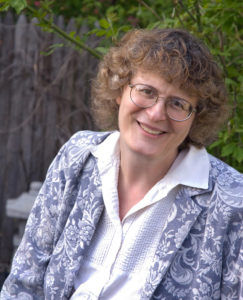 As of 2021, Mary launched her own agency,
As of 2021, Mary launched her own agency, 



 This month’s Industry Insider interview is with literary agent Alyssa Eisner Henkin, Senior Vice President of the Trident Media Group. Her Twitter bio adds these two terrific bio facts: “Lemonade-Maker and Literary Cheerleader.”
This month’s Industry Insider interview is with literary agent Alyssa Eisner Henkin, Senior Vice President of the Trident Media Group. Her Twitter bio adds these two terrific bio facts: “Lemonade-Maker and Literary Cheerleader.”
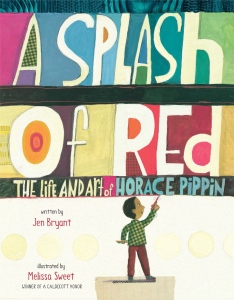
![This Is MY Room!: (No Tigers Allowed) by [Jacobson, Jennifer Richard]](https://images-na.ssl-images-amazon.com/images/I/51VZYnmBZ-L._SX260_.jpg)
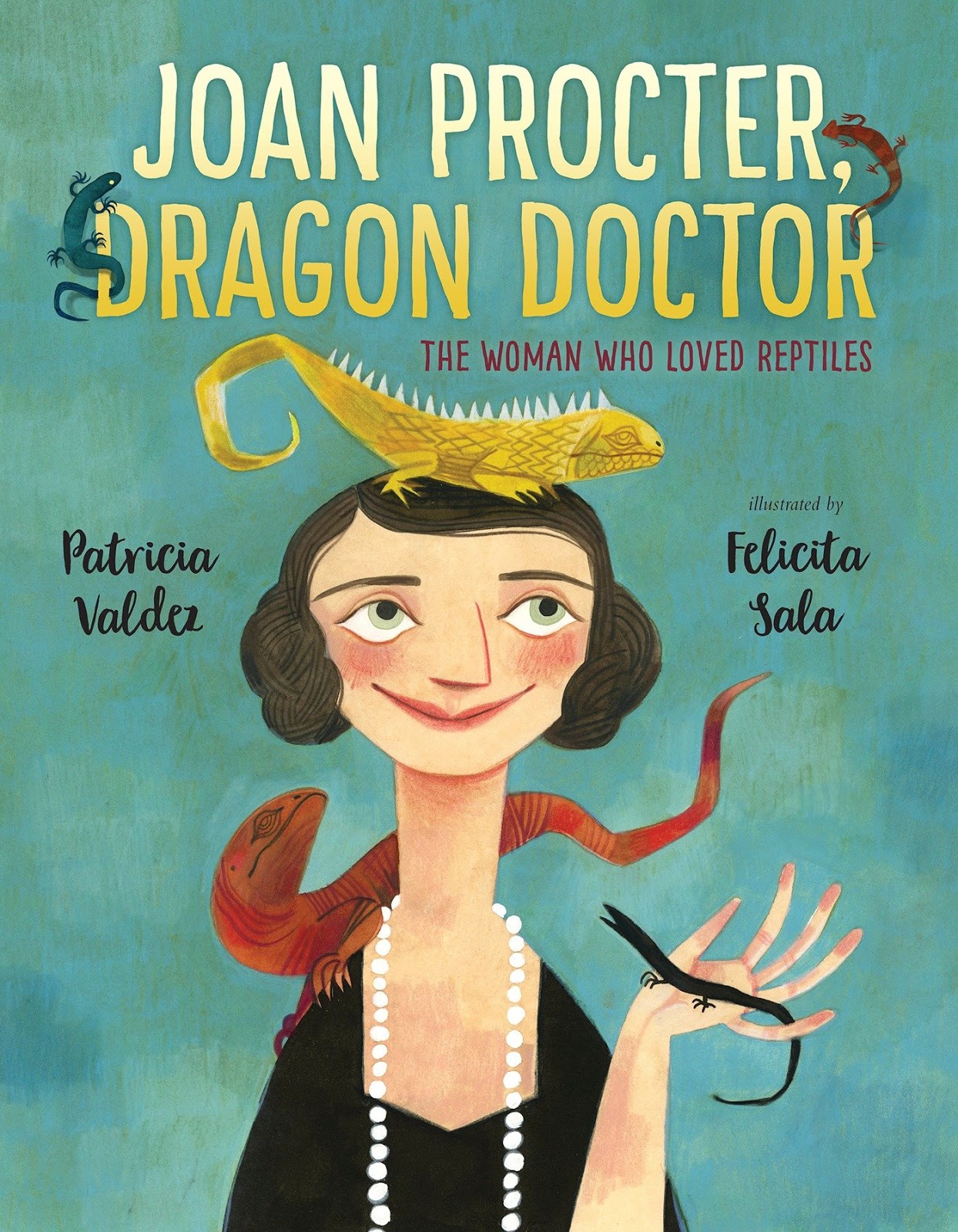
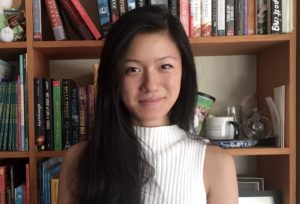 This month’s Industry Insider interview is with Wendi Gu of Janklow
This month’s Industry Insider interview is with Wendi Gu of Janklow 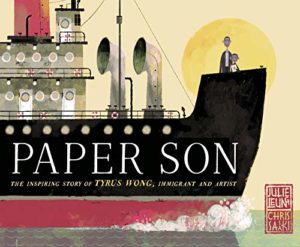
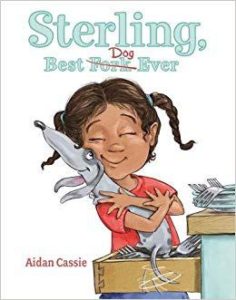
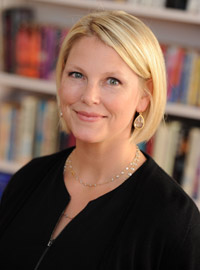 Elizabeth started at Curtis Brown Ltd. almost 20 years ago as an assistant to the legendary
Elizabeth started at Curtis Brown Ltd. almost 20 years ago as an assistant to the legendary 